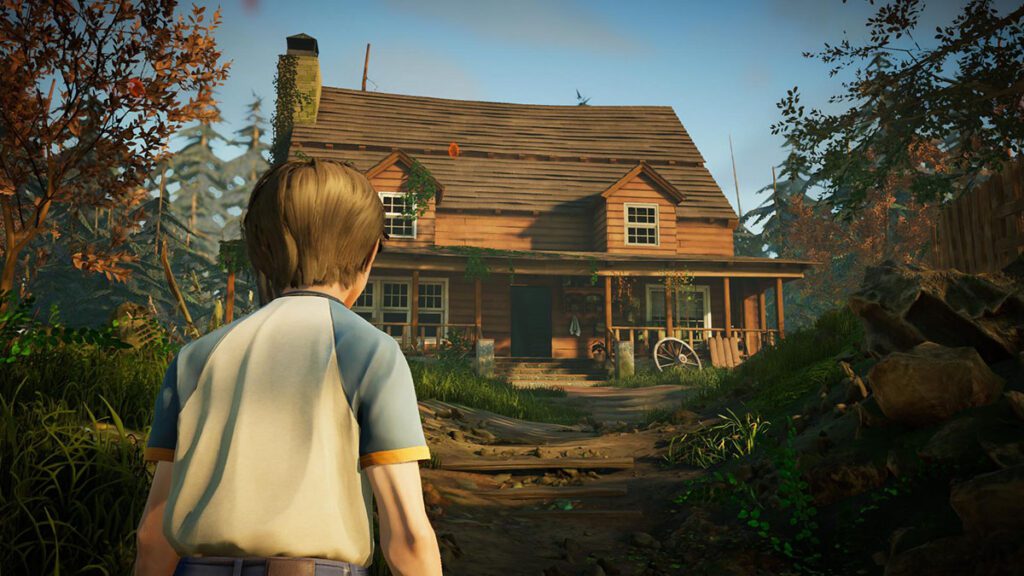Developed by: Pendulo Studios
Published by: Microids
Released: December 16, 2021 (PC)
Alfred Hitchcock – Vertigo is more interactive fiction than a video game. Telltale Games showed that player choice can make a narrative difference. The modern visual novel genre demonstrates that multiple endings and dialog paths provide avenues for players to identify with characters. Alfred Hitchcock – Vertigo does not follow the path of a Telltale adventure game or a visual novel. Vertigo is a singular story along a determined narrative path. However, developer Pendulo Studios does accomplish their vision of a tense, twisty, suspense story. Players expecting a Hitchcock experience will find an atmospheric tale that touches on similar themes while telling a new story.
Pendulo Studios previous was the noir detective adventure Blacksad: Under the Skin. Vertigo moves further in a cinematic direction and pulls more control away from the player. Consequently, dialog choices provide story details but rarely change the outcome. However, there is a subplot where player choice does impact the relationship dynamic between two main characters. This small story choice is minor in the momentum of the narrative. Regardless, by the end of the 9-10 hours of the story, I was engaged in the narrative and the characters.
Story / Plot
Alfred Hitchcock – Vertigo is a completely new story from the 1958 Jimmy Stewart and Kim Novak film. However, it uses thematic elements from the film like past trauma and haunting memories. This original story focuses on a writer, Ed Miller. Ed believes that he killed his daughter, Jenny, and her mother, Faye, in a car crash. However, the Sherif found no evidence of a baby or woman at the car crash. This trauma leads to Ed’s publisher getting a psychiatrist to treat Ed’s case of vertigo. Through her sessions, she begins to uncover the mystery of Ed’s past and discovers more about Faye’s connection with Ed.
There is a parallel story of the Sherif investigating Ed’s crash and the potential deaths. The Sherif’s investigation crosses paths with the psychiatrist’s and between the two narratives, they begin to unravel the mystery. In true Hitchcock fashion, the tension is often more psychological than physical and there are twists along the way.
Gameplay
Players looking for gameplay will be disappointed. Vertigo is a narrative experience with interactive elements. There are times when the player controls the characters as they move around the environment. Occasionally, the player explores for clues. Most of the clues require seeking out nodes to interact with. Other story moments allow for player interaction through controller movements and button presses, similar to quick-time events. Unfortunately, most of these moments feel superficial and lack consequence. Failing a motion can shift dialog, but conversations quickly go back to the linear narrative path.
Fortunately, the key psychiatric mechanic is engaging. Ed first relives his memories, but they are usually more positive than reality. The psychiatrist uses hypnosis to reveal what really happened. Going back through memories allows Ed to look again at specific situations and reveal the truth about his memories. While it remains linear, it is engaging. Additionally, as the investigation builds to a crescendo, the player takes control of a drone and flies it to investigate the crash site. These limited interactions keep players engaged while the story progresses onward. But overall, meaningful gameplay mechanics and interactions are at a minimum.
Graphical Direction
Pendulo Studios uses the viewpoint and camera of the game engine as a director would for a film. This focus on angles, pans, and movement provides Vertigo with a cinematic feeling. The developers mirror a number of camera angles that Hitchcock used. Consequently, resulting in similar effects of tension and suspense. The developers pace the scenes like shooting a movie. A shot will linger on a characters’ face for emotion. The camera may only show an interaction at floor level, obscuring the characters. Vertigo‘s direction is successful in creating a Hitchcock feeling world within a game engine.
Sound Design
The sound design and execution are superb. The original score draws on the musical style of Bernard Herrmann’s score from the Hitchcock film. The composers and also drew inspiration from classical composers that Herrmann has cited influenced his style. The result is a fitting cinematic score that captures the tension and suspense of a Hitchcock film through original music. The sound design engages the player in the world of its’ characters.
Concerns
Anyone coming in with an understanding of what the game is will find an interesting mystery story. Unfortunately, the genre of Point and Click Adventure games and Visual Novels have set expectations higher than Vertigo attempts. Vertigo has less meaningful player interaction and a linear path to the story. Understanding that Pendulo Studios has created a cinematic viewing experience within a game engine is key to appreciating what Vertigo accomplishes.
Even with these managed expectations, there are still concerns. The focus on the narrative and not player choice result in the narrative needing to carry the experience. Unfortunately, the antagonist in this story is underdeveloped. While questions about who the true antagonist is swirl around for the first few chapters. Once it becomes clear, the rationale and motivation push into broad mental health stereotypes. The plot moves from exploring gray morale areas where multiple characters have faults, to an extreme case that excuses the actions of other characters. A more nuanced portrayal of the antagonist would have made their perspective more engaging for the player and more satisfying as a narrative.
Vertigo Stumbles but Does Not Fall
Vertigo is an experience worth taking, but it is not a game to play. Understanding this limitation will impact the enjoyment one will find. Pendulo Studios created a thematic rich story with excellent visual and sound design. Vertigo accomplishes being a Hitchcock inspired film within a game engine. Unfortunately, the narrative plays it safe by explaining the antagonist’s past without understanding it. While the twists in the final section are worthy of Hitchcock, the slowed pacing of the antagonist’s backstory hurts the momentum of the experience. Overall, Alfred Hitchcock – Vertigo achieves its’ creative vision, but that vision will not be for all Adventure game fans.



